Is it possible to drink hibiscus tea during pregnancy: benefits and harms, dosage
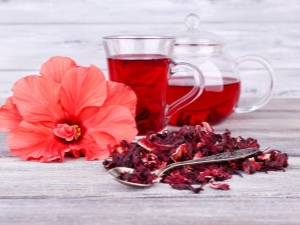
Hibiscus tea is a very healthy drink, especially for women. However, such drinking during pregnancy can bring harm to the body instead of the expected benefit. This article will tell you more about whether it is possible to drink hibiscus during pregnancy, as well as what dosages should be observed when used.
What is useful
Fragrant reddish drink is prepared from hibiscus. This plant grows mainly in countries with a rather hot climate and is characterized by very beautiful flowers. This plant also has a second name - "Sudanese rose". People have long known that drinks made from hibiscus petals bring great benefits to the body.
It was believed that tea made from Sudanese roses should always be present on the table of noble people and nobles of that time. Due to such popularity, this healthy infusion was also often called the "drink of the pharaohs."
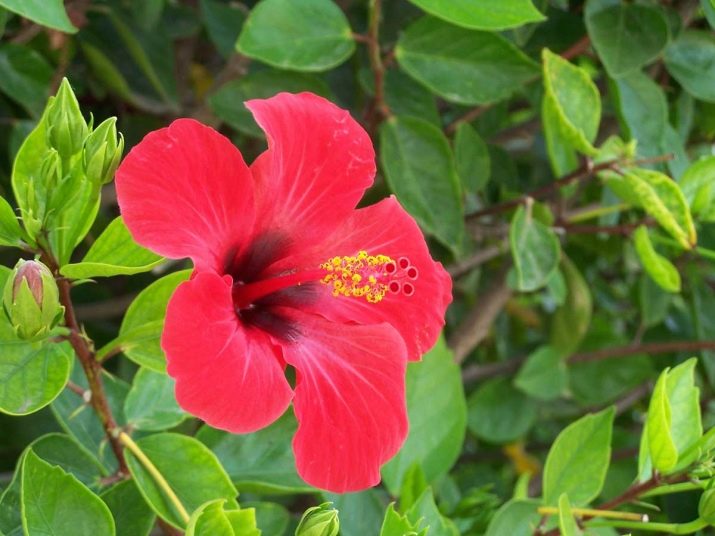
Both women and men can drink hibiscus tea. This healthy drink contains many biologically active components that have a beneficial effect on the body. It is believed that the systematic use of such tasty and fragrant drinks not only improves health indicators, but also helps to preserve youth and beauty for many years.
Pregnancy is a special period in a woman's life. At this time, the female body is rebuilt and begins to work for two.Conventionally, doctors divide the entire period of bearing a baby into three trimesters. Each of them is characterized by specific changes that occur in the body of the expectant mother. Making a diet for expectant mothers is very important. Moreover, pregnant women need not only to monitor what they eat, but also the drinks that they include in their menu. Obstetrician-gynecologists allow expectant mothers to drink drinks that cannot harm either the pregnant woman herself or the baby developing in the mother's womb.

Tea brewed from hibiscus petals contains quite a few components that can affect the state of the future mother's body. For example, it contains anthocyanins. These components have a beneficial effect on the tone of the vascular wall, which helps to strengthen blood vessels. The stronger the vessels, the lower the risk of developing pathological ruptures, and, therefore, the formation of various pathologies.
Hibiscus petals contain flavonoids. These components can affect the functioning of the organs of the gastrointestinal tract. Drinking hibiscus tea can help reduce nausea and signs of morning sickness, which often worries expectant mothers at 3-9 weeks pregnant. Also, the intake of such a fragrant drink helps to normalize the stool by activating the work of the organs of the gastrointestinal tract. Tea made from Sudanese rose petals is rich in ascorbic acid. Natural vitamin C helps the body improve the functioning of the immune system.
It is believed that women who regularly consume a sufficient amount of food and drinks containing ascorbic acid get sick less, even during the SARS and flu season.
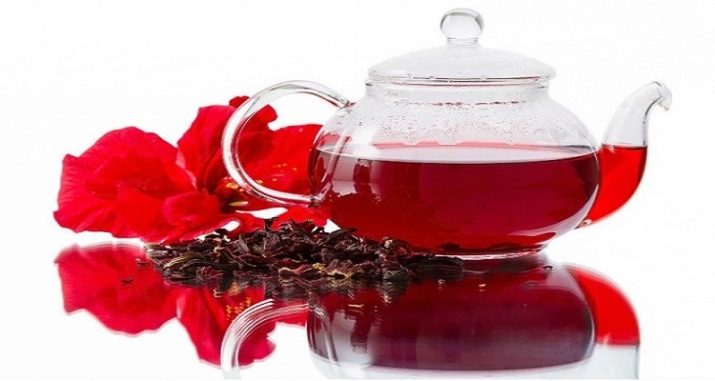
Many have heard that drinking drinks from hibiscus petals helps to normalize blood pressure. Indeed, hibiscus tea contains components that affect the tone of blood vessels. These special chemicals also have an antispasmodic effect. Removal of spasm from the blood arteries and contributes to the fact that blood pressure indicators change. This action should be remembered by women who are prone to hypotension or suffer from hypertension.
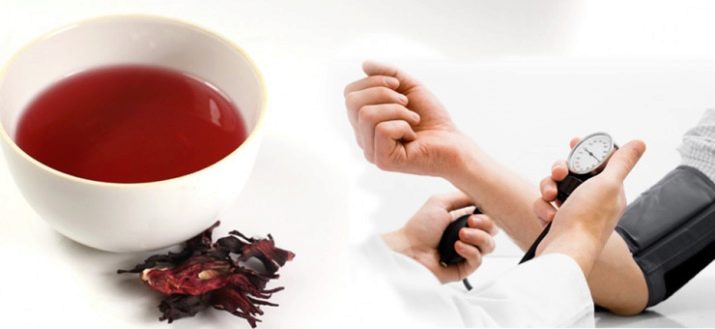
Sudanese rose tea contains components that favorably affect blood formation. The use of such a drink contributes to the fact that blood counts begin to change. Traditional medicine experts recommend drinking tea for people suffering from diseases that occur with a low level of hemoglobin. Drinks made from Sudanese rose petals also contain components that affect the functioning of the excretory system. Many centuries ago, people living in eastern countries believed that the use of such tea helps to remove harmful substances from the body.
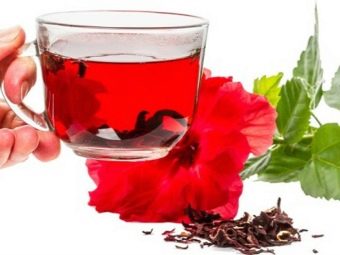
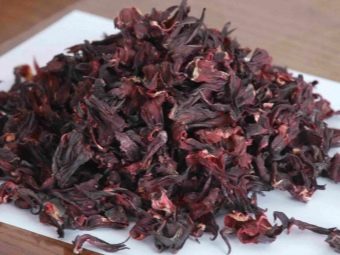
People who have tried hibiscus tea noted that this drink has a diuretic effect. During pregnancy, many expectant mothers face the problem of edema. Usually this symptom bothers a pregnant woman in the second or third trimester of pregnancy. Drinking hibiscus tea helps to remove excess fluid from the body, thereby leading to a decrease in swelling.
What is harmful
During pregnancy, the functioning of the female body changes. Moreover, such specific changes occur almost after conception and until the very birth. In future mothers, the hormonal background changes, the load on the internal organs increases, and the restructuring of the nervous system begins. In such a “special position”, the use of even familiar foodstuffs can bring harm to the body instead of the expected benefit. Moreover, the expectant mother in such a situation can harm not only herself, but also her baby.
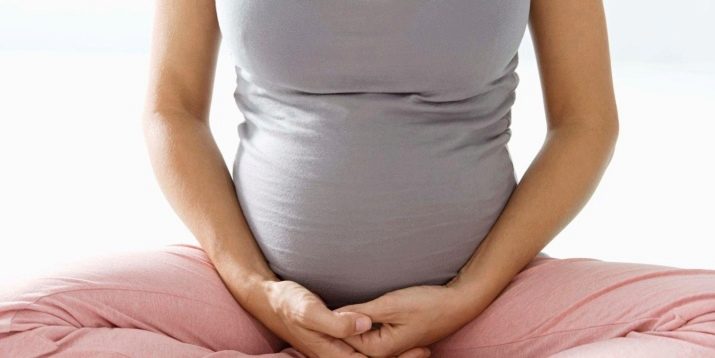
Doctors say that expectant mothers should not drink drinks made from the petals of exotic plants, including hibiscus. While carrying a baby, it is better to choose more familiar drinks. In this case, the risk of adverse symptoms is significantly reduced.
Experts note that hibiscus petals contain a number of components that can affect the functioning of the female reproductive system. Such an impact can contribute to a change in the level of sex hormones, which is extremely dangerous, especially in the early stages of pregnancy, when all internal organs and systems are laid in the fetus. The use of drinks that affect the state of the female reproductive system can even contribute to the deterioration of the course of pregnancy and the formation of conditions dangerous to the fetus.
Hibiscus contains quite a lot of plant components that have an antispasmodic effect. This should be remembered by women in the third trimester of pregnancy.
The use of Sudanese rose drinks, especially in large quantities and strongly brewed, can lead to a shift in the expected date of delivery.The risk of developing such a situation is quite high in women who have a burdened obstetric and gynecological history and previous miscarriages.
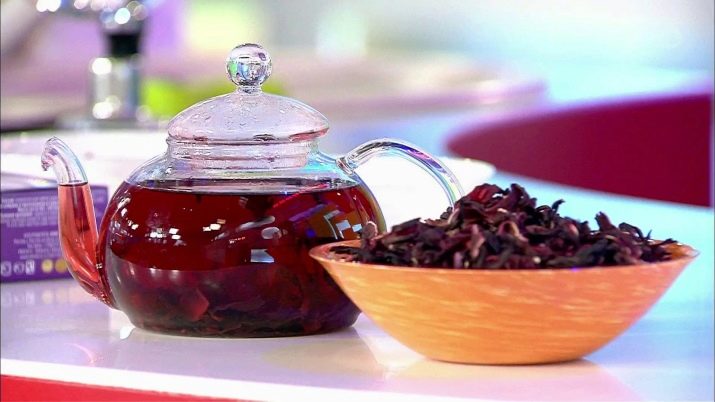
Contraindications
Not everyone can drink drinks made from hibiscus petals. If there are contraindications, you should not drink such tea, as this can lead to the development of extremely dangerous symptoms. Doctors do not recommend drinking Sudanese rose petal drinks for women who are allergic or have an individual intolerance to hibiscus. In this case, taking hibiscus tea can lead to allergic symptoms. These manifestations include:
- the appearance of itchy blisters or spots on the skin;
- respiratory failure due to allergic edema of the larynx;
- puffiness of the face;
- swelling of the eyelids, lips and neck;
- deterioration of well-being, a sudden feeling of severe weakness.
It also happens when, when drinking tea from hibiscus petals for the first time, a woman does not know that she is allergic to this plant. In this case, it should be remembered that if any signs of an allergic pathology occur, it is better to immediately consult a doctor and, after the permission of a specialist, take an antihistamine.
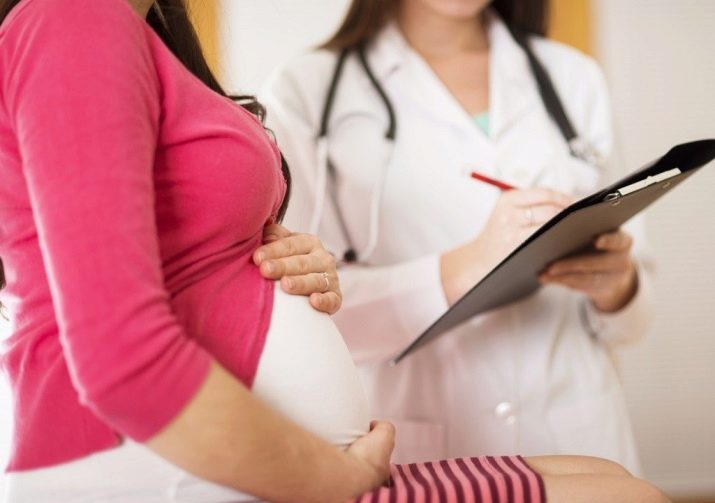
Expectant mothers should not experiment with the inclusion of new foods and drinks in their diet.
If for some reason you didn’t try hibiscus tea before pregnancy, then you shouldn’t do it for the first time during the period of bearing a baby. In such a situation, it is impossible to predict how the body will react to hibiscus. Also, special care should be taken by women who are allergic to various tropical fruits. In this case, you can drink hibiscus tea only after consultation with your doctor.
Drinks brewed with Sudanese rose petals can also trigger an increased production of gastric juice. That is why they are generally not recommended for people suffering from stomach or intestinal ulcers. The use of such drinks can provoke an exacerbation of the disease, which is manifested by the appearance of severe pain in the abdomen, as well as the occurrence of dyspeptic symptoms. It should be noted that some women who do not have contraindications still drink Sudanese rose drinks during pregnancy.
Feedback from such women indicates that hibiscus tea helped them cope with the debilitating feeling of constant nausea.

Sudanese rose drinks should not be consumed by women suffering from urolithiasis and having a tendency to form calculi. The components contained in tea can affect metabolic processes, and also have a diuretic effect. With the removal of excess water from the body and in the presence of an individual tendency to stone formation, new calculi (“stones”) may appear in the kidneys. During pregnancy, urolithiasis can significantly aggravate the bearing of the baby.
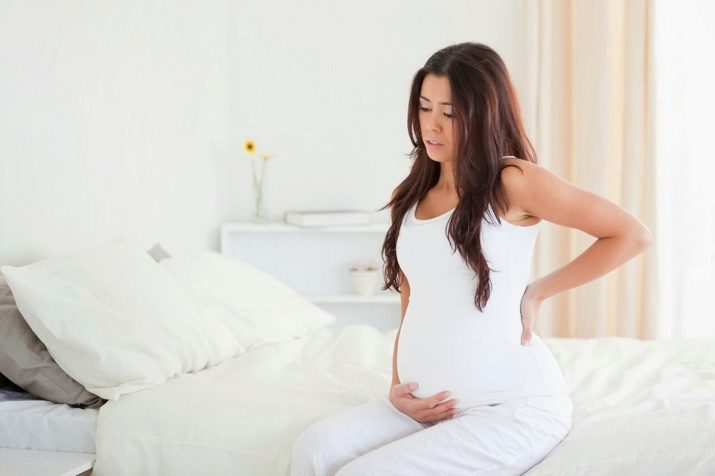
To avoid adverse consequences, expectant mothers suffering from urolithiasis should not drink hibiscus tea.
Tips for expectant mothers
Every mom-to-be makes her own informed choice whether to include hibiscus drinks in her diet or not. However, in order not to harm either yourself or your baby, before making any decision, you should still consult a doctor. Also, before including hibiscus drinks in your menu, you can use the following recommendations.
- When drinking hibiscus tea during pregnancy, remember the measure.One cup a day will be enough. Drinking this drink in large quantities can contribute to the appearance of adverse symptoms.
- When buying, try to pay attention to the country of origin. So, teas brought from Egypt, when brewed, have a more sour taste. Such a special sourness may not appeal to many women.
- Carefully monitor your well-being after drinking a drink. If any uncomfortable symptoms appear after taking hibiscus tea, you should stop taking this drink, as this can bring harm to the body instead of the expected benefit.
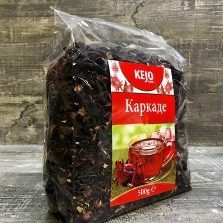
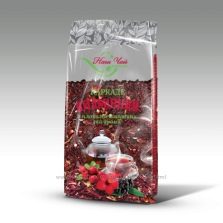
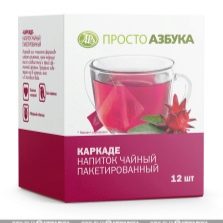
For the benefits and dangers of hibiscus tea, see the following video.













